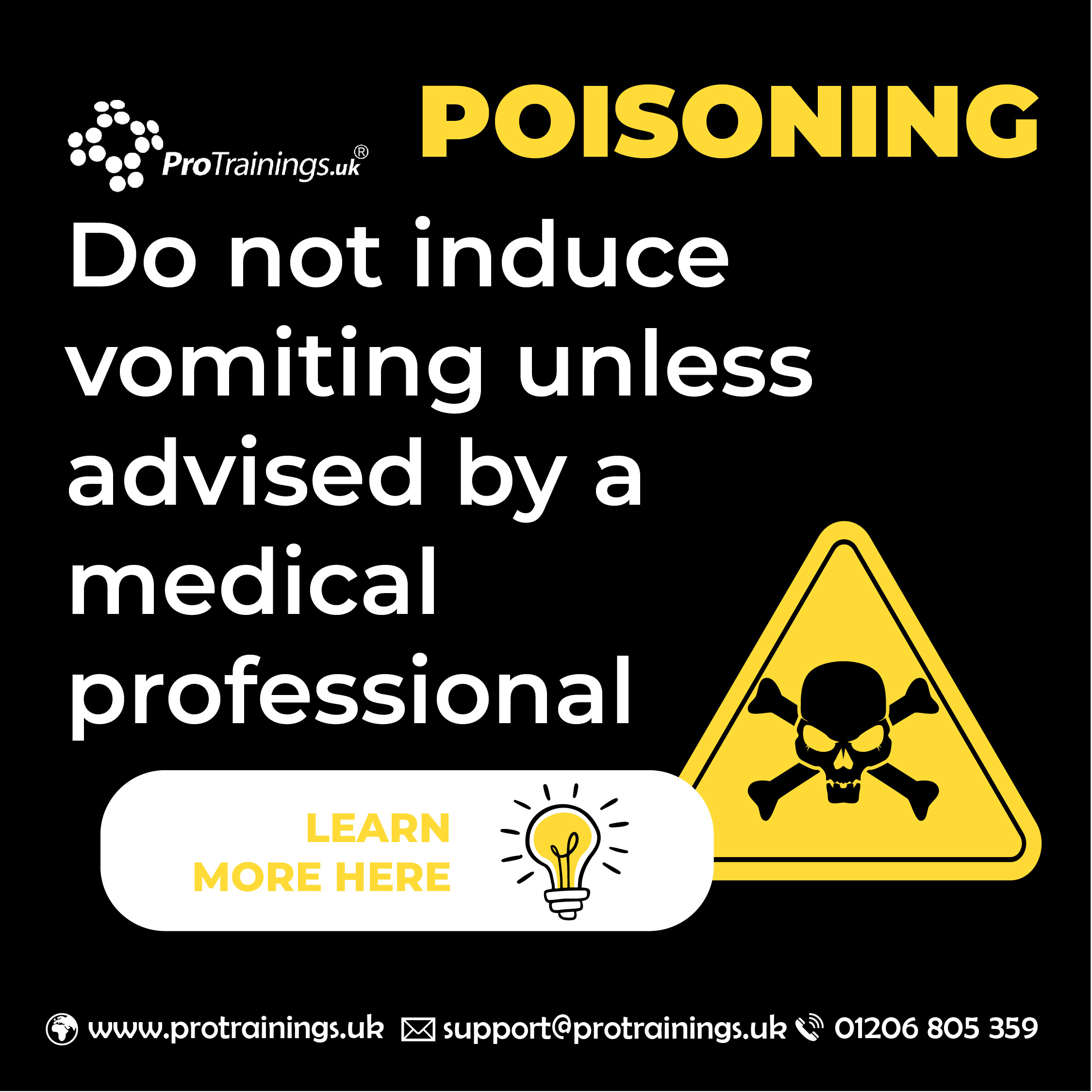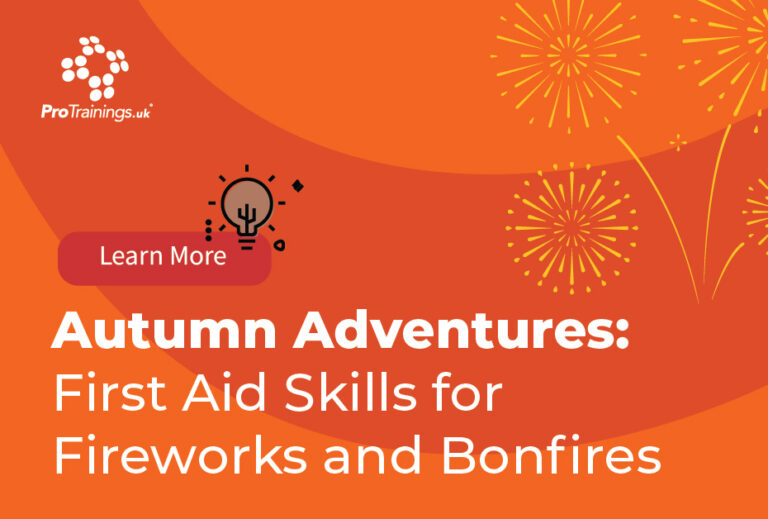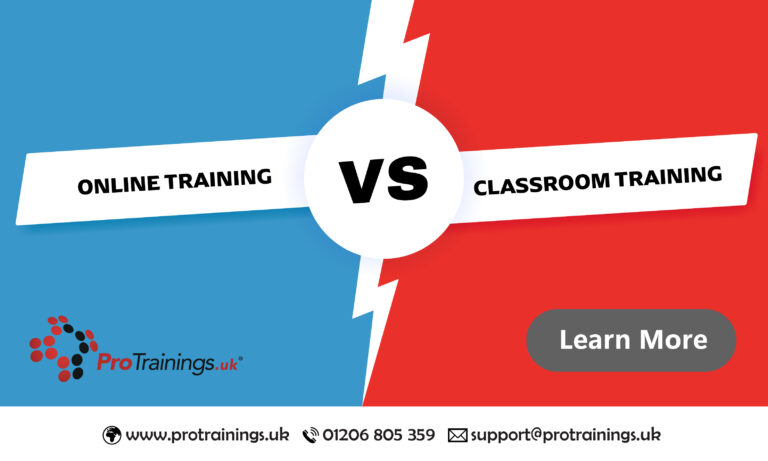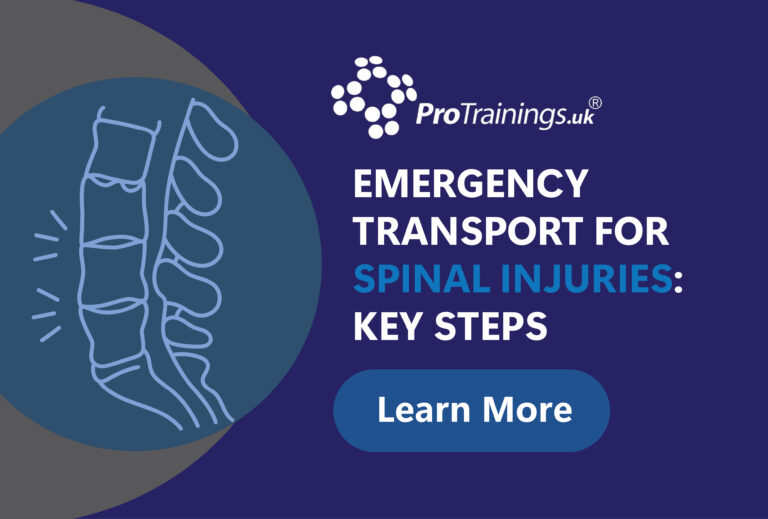Poisoning: Recognising and Responding to Poisoning Emergencies
Poisoning occurs when harmful substances are ingested, inhaled, absorbed through the skin, or injected into the body. Poisoning can happen accidentally, intentionally, or due to environmental exposure. It is a medical emergency that requires prompt action to prevent serious injury or death. Understanding the signs of poisoning and knowing how to provide first aid can make a significant difference in the outcome.
Common Causes of Poisoning
Poisoning can result from a variety of substances, including:
- Medications: Overdosing on prescription or over-the-counter drugs, either accidentally or intentionally.
- Household Chemicals: Cleaning products, bleach, pesticides, and other chemicals commonly found in the home.
- Alcohol or Drugs: Excessive consumption of alcohol, recreational drugs, or toxic substances like methanol or antifreeze.
- Food Poisoning: Ingesting contaminated or spoiled food.
- Carbon Monoxide: Inhaling fumes from faulty gas appliances or car exhausts.
- Plants or Fungi: Consuming poisonous plants or mushrooms.
Signs and Symptoms of Poisoning
The symptoms of poisoning vary depending on the type of poison, the amount ingested, and the route of exposure. Common signs and symptoms include:
- Nausea and Vomiting: The body’s attempt to expel the poison.
- Abdominal Pain: Stomach pain or cramping may occur after ingesting toxic substances.
- Confusion or Drowsiness: The person may become disoriented, confused, or sleepy.
- Breathing Difficulties: The person may struggle to breathe or breathe very rapidly.
- Headache: A headache can result from exposure to poisons, especially gases like carbon monoxide.
- Dizziness or Fainting: The person may feel light-headed or faint.
- Seizures: In severe cases, poisoning can trigger seizures or convulsions.
- Burns or Redness Around the Mouth: Some poisons, such as cleaning products or acids, can cause visible burns around the mouth or throat.
- Unconsciousness: The person may lose consciousness in severe cases of poisoning.
- Dilated or Constricted Pupils: The pupils may become unusually large or small, depending on the type of poison.
- Blurred Vision or Slurred Speech: The person may have difficulty seeing or speaking clearly.
First Aid for Poisoning
- Call 999 or a Poison Control Centre:
- Poisoning is a medical emergency, so call 999 immediately. You can also contact the UK National Poisons Information Service (111) for guidance on how to proceed while waiting for help.
- Be ready to provide information such as the person’s age, weight, the type of poison (if known), the amount ingested, and how long ago it occurred.
- Check for Danger:
- Ensure the area is safe before helping the casualty, particularly in cases of inhaled poisons like carbon monoxide. If there is a risk of toxic fumes, ventilate the area by opening windows and doors, and move the person to fresh air if it is safe to do so.
- Do Not Induce Vomiting:
- Do not try to make the person vomit unless instructed to do so by a medical professional. Vomiting can cause additional damage, especially if the poison is corrosive, such as bleach or other cleaning products.
- Identify the Poison:
- Try to determine what substance the person has been exposed to. This may involve checking medication bottles, chemical containers, or food packaging. Take these items with you to the hospital if possible, as they can help medical professionals provide the appropriate treatment.
- Treat Based on the Type of Poisoning:
Ingested Poisons (Swallowed):
- If the person has swallowed poison, check if the substance was corrosive or non-corrosive. Corrosive substances, such as acids or bleach, can cause burns to the mouth and throat.
- Give the person small sips of water or milk to dilute non-corrosive poisons, but only if they are fully conscious and able to swallow.
- If the person shows signs of severe poisoning, such as difficulty breathing or unconsciousness, call 999 immediately.
Inhaled Poisons:
- Move the person to fresh air immediately. Ensure they are away from the source of the poison, such as carbon monoxide or chemical fumes.
- Loosen any tight clothing around their neck and chest to help them breathe more easily.
- If the person is unconscious but breathing, place them in the recovery position and monitor their breathing until help arrives. If they stop breathing, begin CPR.
Skin Contact with Poisons:
- If a chemical has been spilled or splashed onto the skin, remove any contaminated clothing and rinse the affected area with cool running water for at least 10 minutes.
- Avoid touching the poison yourself, and use gloves or another barrier if necessary.
Eye Contact with Poisons:
- If a poison gets into the eyes, rinse the eyes with clean, cool running water for at least 10 minutes. Ensure the water flows from the inner corner of the eye to the outer corner to avoid spreading the poison.
- Encourage the person to blink frequently while rinsing, but do not let them rub their eyes.
Carbon Monoxide Poisoning:
- Carbon monoxide is a colourless, odourless gas that can be deadly. If you suspect carbon monoxide poisoning, move the person to fresh air immediately.
- Call 999 and mention that you suspect carbon monoxide poisoning. Symptoms include headache, dizziness, nausea, confusion, and shortness of breath.
- Monitor Breathing and Consciousness:
- Keep a close watch on the person’s breathing and level of consciousness. If they become unresponsive, place them in the recovery position and monitor their condition. Be prepared to perform CPR if they stop breathing.
When to Seek Medical Help
Poisoning is a medical emergency, so you should call 999 immediately if:
- The person has ingested a harmful substance, such as medications, chemicals, or alcohol.
- The person is experiencing difficulty breathing, seizures, or confusion.
- The person becomes unconscious or unresponsive.
- You are unsure what the poison is, or the person’s symptoms are worsening.
Prevention of Poisoning
- Store Chemicals and Medications Safely: Keep cleaning products, medicines, and other toxic substances out of reach of children and pets. Use childproof locks on cabinets where these substances are stored.
- Read Labels Carefully: Always follow the instructions on household products and medications. Do not mix chemicals, as this can create toxic fumes.
- Use Carbon Monoxide Detectors: Install carbon monoxide detectors in your home, particularly near gas appliances, fireplaces, and bedrooms.
- Dispose of Medicines Safely: Take expired or unused medications to a pharmacy for safe disposal.
Key Points to Remember
- Call 999 immediately if poisoning is suspected and provide as much information as possible about the substance involved.
- Do not induce vomiting unless advised by a medical professional.
- Move the person to fresh air or rinse the skin or eyes if poison has been inhaled or contacted externally.
- Monitor breathing and be prepared to provide CPR if the person becomes unresponsive.




